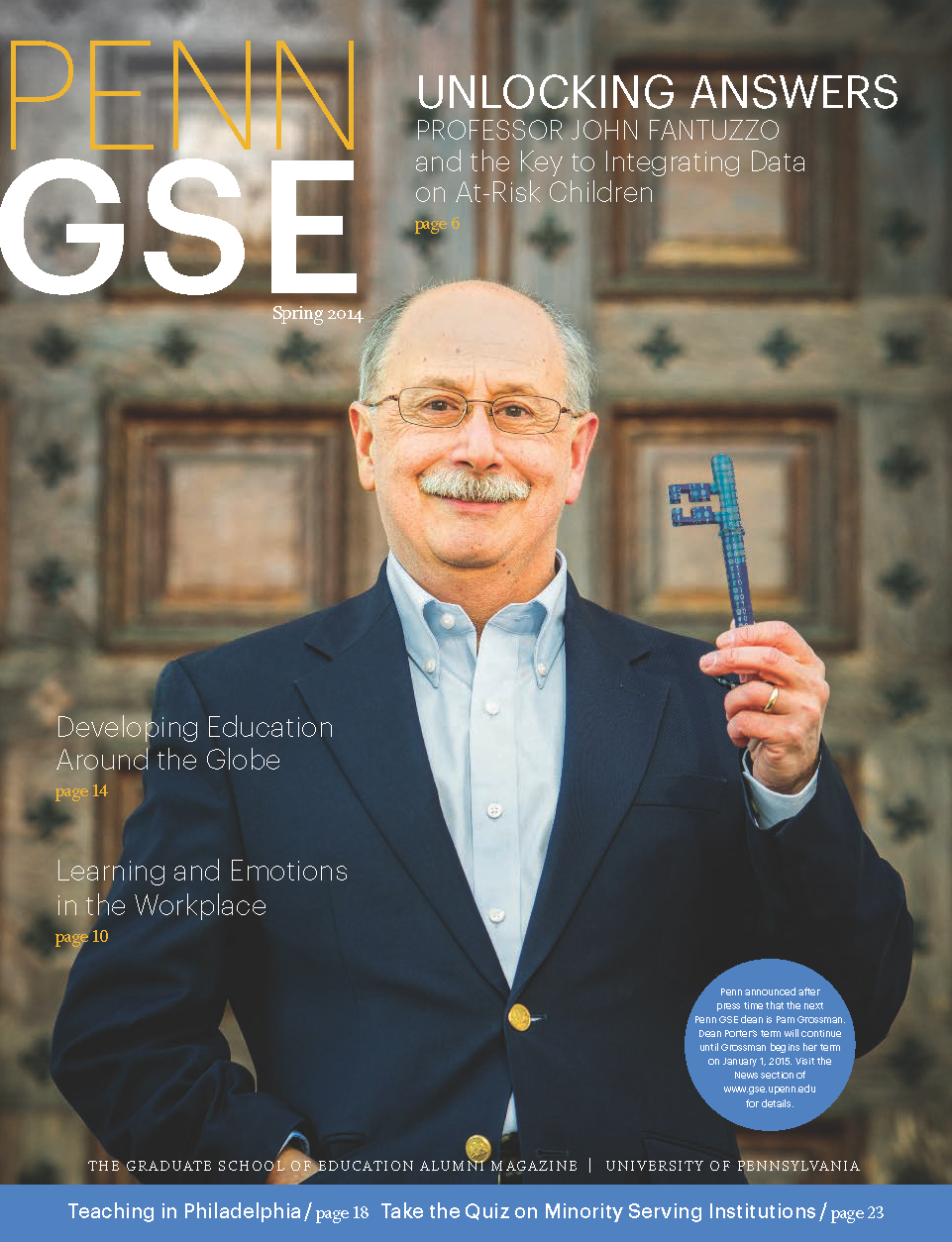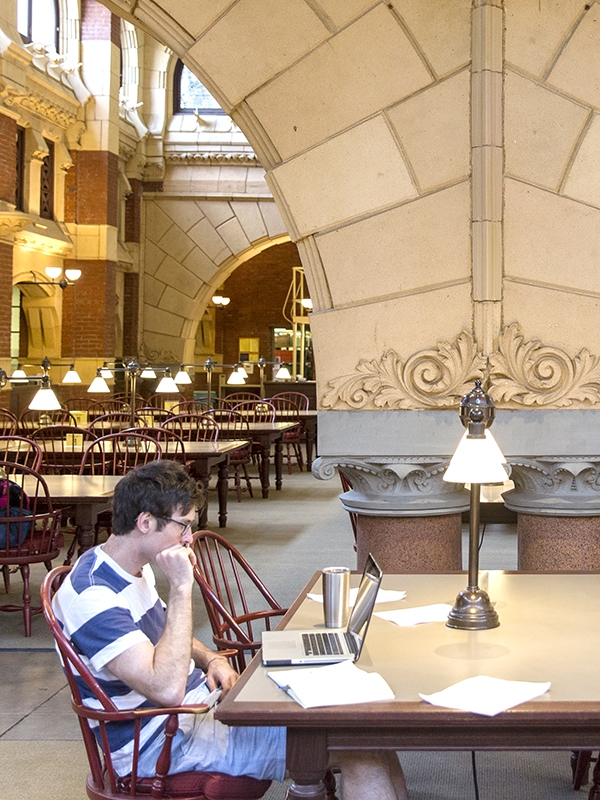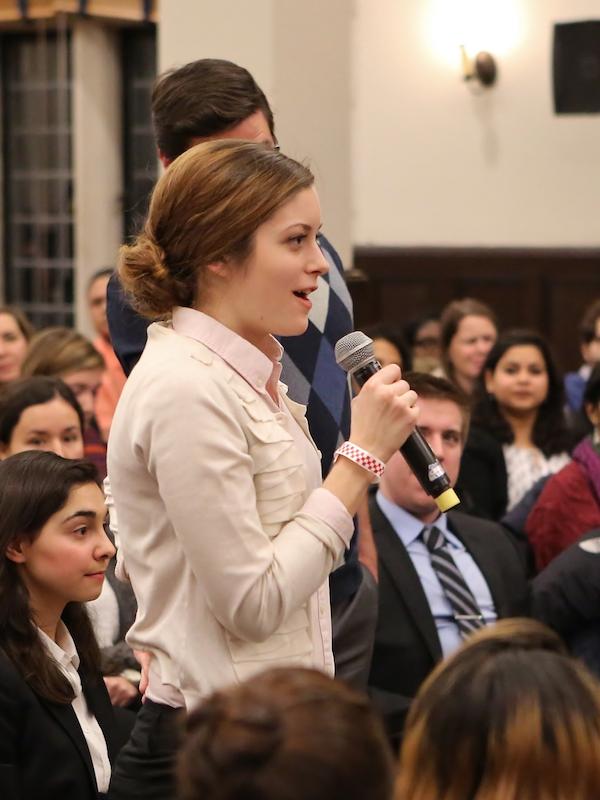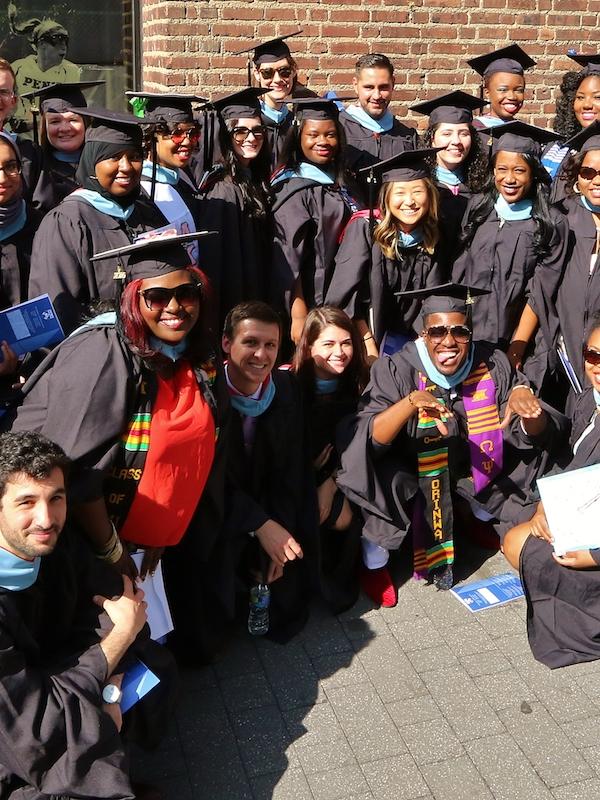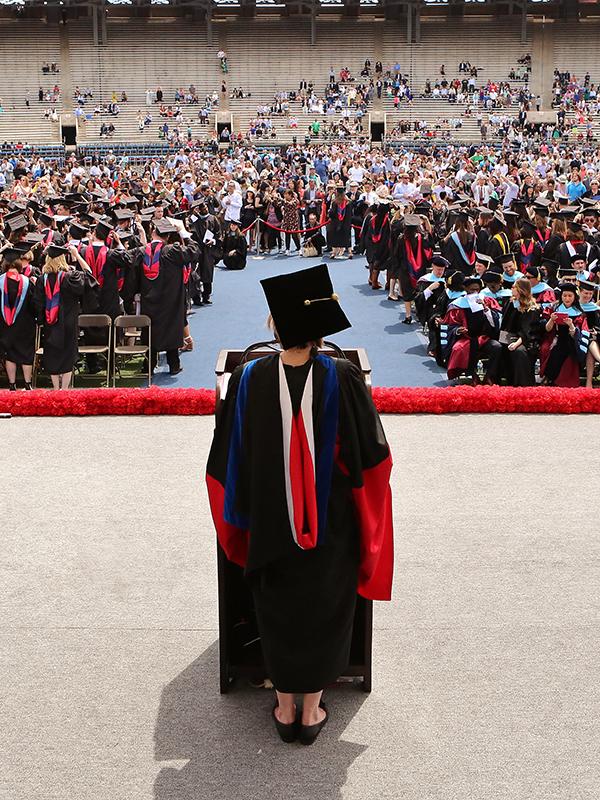Careers with Global Impact: International Educational Development Program Internships Build Practical Knowledge
by Lakshmi Gandhi
“A huge staple of the IEDP was that we were taught to try to think outside of the box. What are the real solutions? How do we look at problem solving differently?”
Education is not only a doorway to greater opportunity; it is a basic human right. According to the United Nations Educational, Scientific, and Cultural Organization (UNESCO), education is key to eliminating poverty and disease, fostering peace and gender equality, and creating sustainable economic development around the world. Penn GSE’s International Educational Development Program (IEDP) is dedicated to furthering education from this perspective. Each year, dozens of students in the program gain practical experience advancing literacy, health education, educational access, and more through international internships.
“Our sustained focus on people in need in developing countries sets us apart from other international education programs, as does our emphasis on hands-on experience in the field,” says IEDP Director Dan Wagner, UNESCO Chair in Learning and Literacy and Professor of Education at GSE. “We may be the only program in the world offering this combination.”
After completing a required course in fieldwork at GSE, students earning their M.S.Ed. in International Educational Development put their practical knowledge to the test as interns, bringing theory to the ground level to improve education worldwide. Working principally in Africa, Asia, Latin America, and Europe, students complete internships for eight to twelve weeks at partner organizations such as UNESCO, UNICEF, World Vision, Save the Children, and the Aga Khan Foundation. Graduates often say that the skills and professional relationships they developed as interns were essential to their postgraduate careers.
“We set a very high bar for ourselves and our partner organizations,” says Dr. Wagner, who works with IEDP Associate Director Dr. Ameena Ghaffar-Kucher to help students find placements that best suit their interests and fields of study. “We treat our students as professionals, and they in turn are treated as professionals responsible for real work on the ground.”
A look at a few recent graduates shows some of the many ways that IEDP internships connect students to professional roles with an international impact.
From Intern to Employee
Kelly (Franquemont) Shiohira, GED’12, travelled to Johannesburg, South Africa, for her internship with the Molteno Institute for Language and Literacy, a nongovernmental organization that operates literacy projects throughout Africa.
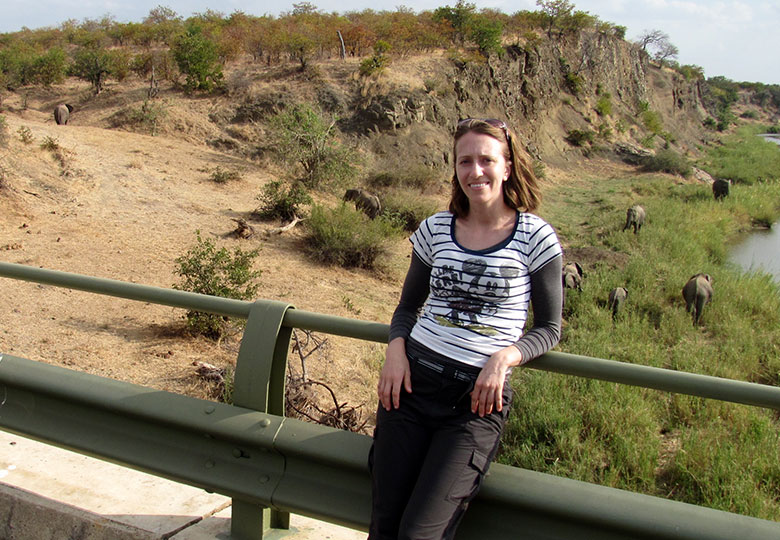
When the organization allowed her to select the focus of her work, she chose to study Molteno’s use of self- reflection practices, such as journaling, aiming to show how teacher trainers and coaches can improve their performance and evaluate their own progress by regularly reflecting on their efforts. Shiohira was asked to formally present the results of her research to the organization’s upper management at the end of her internship, as well as to facilitate a workshop on fundraising, organizational efficiency, and marketing, topics that senior staffers at Molteno told her were the main challenges of the organization.
“The CEO and director of the R&D department were both impressed by my work, and they offered me a position before my internship ended,” says Shiohira. She joined the staff of the Molteno Institute as a research and development officer in January 2013, becoming one of the many IEDP students who have parlayed an internship into a full-time position.
She fondly recalls her GSE classmates, crediting them as an integral part of the experience. “IEDP is an amazing program because of the diversity,” says Shiohira, who has enrolled in a master’s program in linguistics at South Africa’s Rhodes University and eventually intends to pursue a Ph.D. in educational development. “If you look at my class, we all had different backgrounds, and different but complementary interests.”
Building Skills While Living Abroad
The IEDP faculty strive to match students with internships that will put their strengths to best use. Some students, such as Sarah Horns, GED’11, develop curricula for their organizations. As an intern for UNICEF in Kampala, Uganda, in the summer of 2011, Horns worked with a program that assisted children diagnosed with HIV/AIDS. “They had a problem with kids who weren’t taking their medications,” explains Horns, a former teacher who was drawn to the internship because it combined public health with educational issues. “So I did informal interviews with them and designed a life skills curriculum to help reduce the problems experienced by the HIV-positive adolescents.”
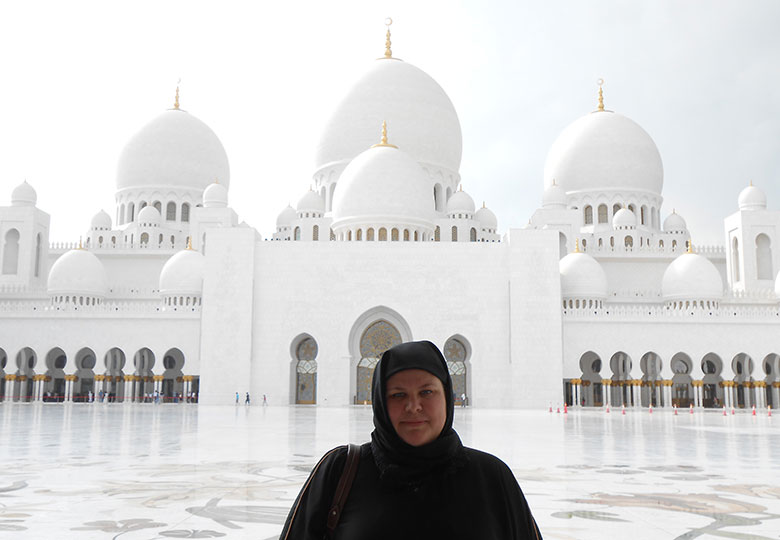
Horns now applies similar skills as an education advisor at the Abu Dhabi Education Council, where she works with a cluster of schools to help teachers and develop resources, focusing on long- term strategies rather than short-term fixes.
“In my job, it would be easy to walk into a school and make changes to procedures, write school policy, or create action plans for a department all on my own,” Horns explains. “But when I leave that school, it is likely that these changes will be reversed or forgotten. What I have been hired to do is to build the capacity of the teachers and administrators in a group of schools. This is not an easy process and takes time.”
Horns credits the IEDP with giving her the right combination of hands-on and theoretical experience for this challenging work. “I loved the interdisciplinary way they set things up, because it enabled me to connect my academic work to policy and practice,” she says.
She also notes the ease with which the program faculty were able to place students at some of the most reputable organizations around the globe. “Without the IEDP, I don’t think I would have been able to get into UNICEF,” she says.
Other students focus their internships on research and assessment. Khaing Zah Lynn, GED’12, interned with UNESCO Bangkok during her course of study. In addition to reviewing UNESCO’s former policies on education in the Asia-Pacific region and recommending effective programs and projects for the future, Lynn worked on several non-formal education programs meant to help students who have dropped out of school return to the mainstream school system.
While at UNESCO, Lynn also had the opportunity to assist with organizing and preparing the Asia-Pacific Annual Review meeting, a gathering convened by the Japanese government to review all state-funded Asia-Pacific projects.
A citizen of Myanmar, Lynn accepted a position in Yangon, Myanmar, with the German International Development Cooperation (GIZ) after receiving her master’s degree and working for UNICEF in Myanmar. GIZ supports the German government’s goals for sustainable development around the world. Lynn applies her research and assessment skills as an advisor for technical and vocational education and training development, reviewing current training methods and supporting the creation of an Industrial Teacher Training Centre. “I have traveled across the country, observing teaching workshops and interviewing teachers on their backgrounds and skills to be updated for their teaching effectiveness,” she says.
A Chance to Work Across Multiple Countries
Getting to know another country is a benefit of most students’ internships. For Emily Wallace, GED’12, experience with another two dozen countries lay ahead.
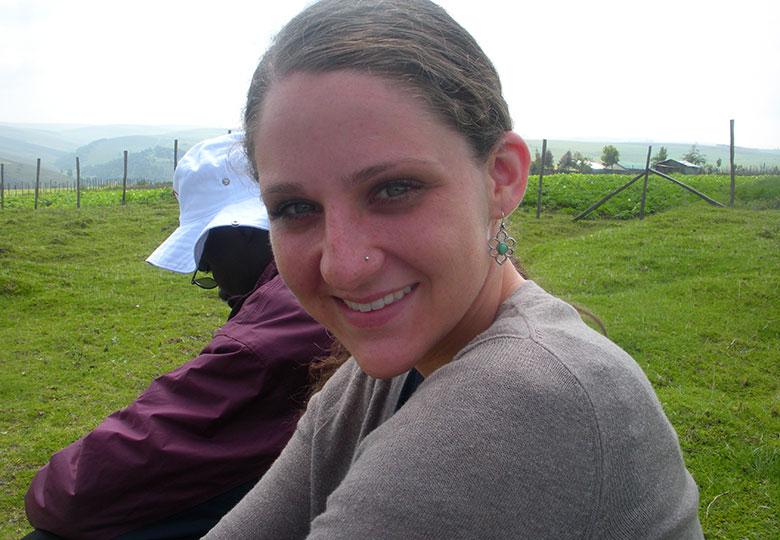
Having already lived and worked in Tanzania as a teacher for two years prior to entering GSE, Wallace interned for the IEDP in Kampala, Uganda, with World Vision, a humanitarian organization that works to combat poverty and injustice.
As an educational knowledge management intern, Wallace traveled to many of the nine African nations where her department had a presence, checking on projects as the organization went through a philosophical transition. “It was a lot of responsibility and it was also very exciting,” says Wallace.
Her supervisors noticed her dedication and ability, and offered her a one-month consultancy after her internship ended. Her term as a consultant was quickly extended for another nine months, and her work expanded to encompass projects in twenty-five countries. In July, Wallace joined World Vision as a resource adaptation trainer in the Swaziland office, where she develops teaching and learning materials.
“It was definitely a valuable experience,” says Wallace of her IEDP internship with World Vision. “The internship is a necessary component for work in this field.” She adds that the IEDP at GSE stands out among its competitors for its practical focus.
Thinking Outside of the Box to Find Solutions
Occasionally, students take an unconventional route for their internships. Nicholas Ashburn, GED’12, used the creative-thinking techniques of designers to look at education problems as an intern at IDEO.org. The nonprofit arm of IDEO, a San Francisco-based design and innovation firm, IDEO.org uses design principles to integrate human needs, technological capabilities, and business savvy into holistic solutions for global poverty. Ashburn worked on several education-related projects to reduce poverty, including e orts with an online community college in the United States and an initiative on clean toilets and other sanitation issues in Ghana.
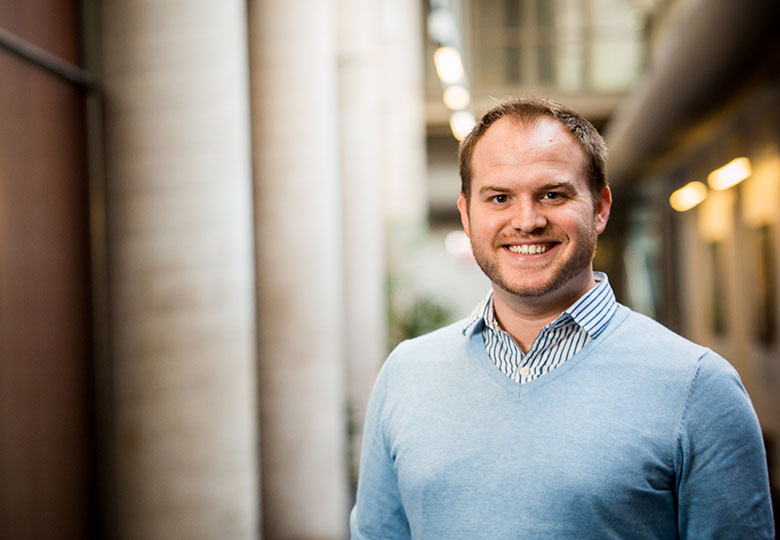
One of the few who have completed IEDP internships in the United States, Ashburn says the skills he learned in the IEDP meshed nicely with the philosophy of IDEO.org. “A huge staple of the IEDP was that we were taught to try to think outside of the box,” he says. “What are the real solutions? How do we look at problem solving differently?”
After graduating, Ashburn moved to Austin, Texas, and decided to strike out on his own as an educational consultant. He quickly developed a wide variety of clients, working on projects ranging from sustainable architecture to entrepreneurial loans along the Texas-Mexico border.
Ashburn’s post-Penn journey came full circle in December, when he returned to the University to become the director of special projects for impact investing at The Wharton School. The position is part of the Wharton Social Impact Initiative, which uses business knowledge and practices to enhance the greater good, both locally and globally.
Influencing the Future of Education
This generation of IEDP alumni considers it vital to make a long-term impact on international education. As the graduates work to influence educational policy around the globe in their new positions, the changes they effect for underserved children will be the true fulfillment of the IEDP’s mission.
“Our aim is to prepare our graduates to recognize the inequities across and within nations—and to help them develop the knowledge, skills, and disposition required to partner with stakeholders and make a difference.”
“Penn and GSE are committed to global engagement—to connecting theory with policy and practice across the world,” says Ghaffar-Kucher. “Our aim is to prepare our graduates to recognize the inequities across and within nations—and to help them develop the knowledge, skills, and disposition required to partner with stakeholders and make a difference.”
This article originally appeared in the Spring 2014 issue of The Penn GSE Magazine.

